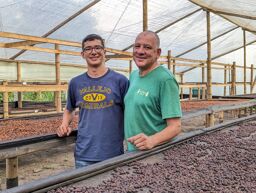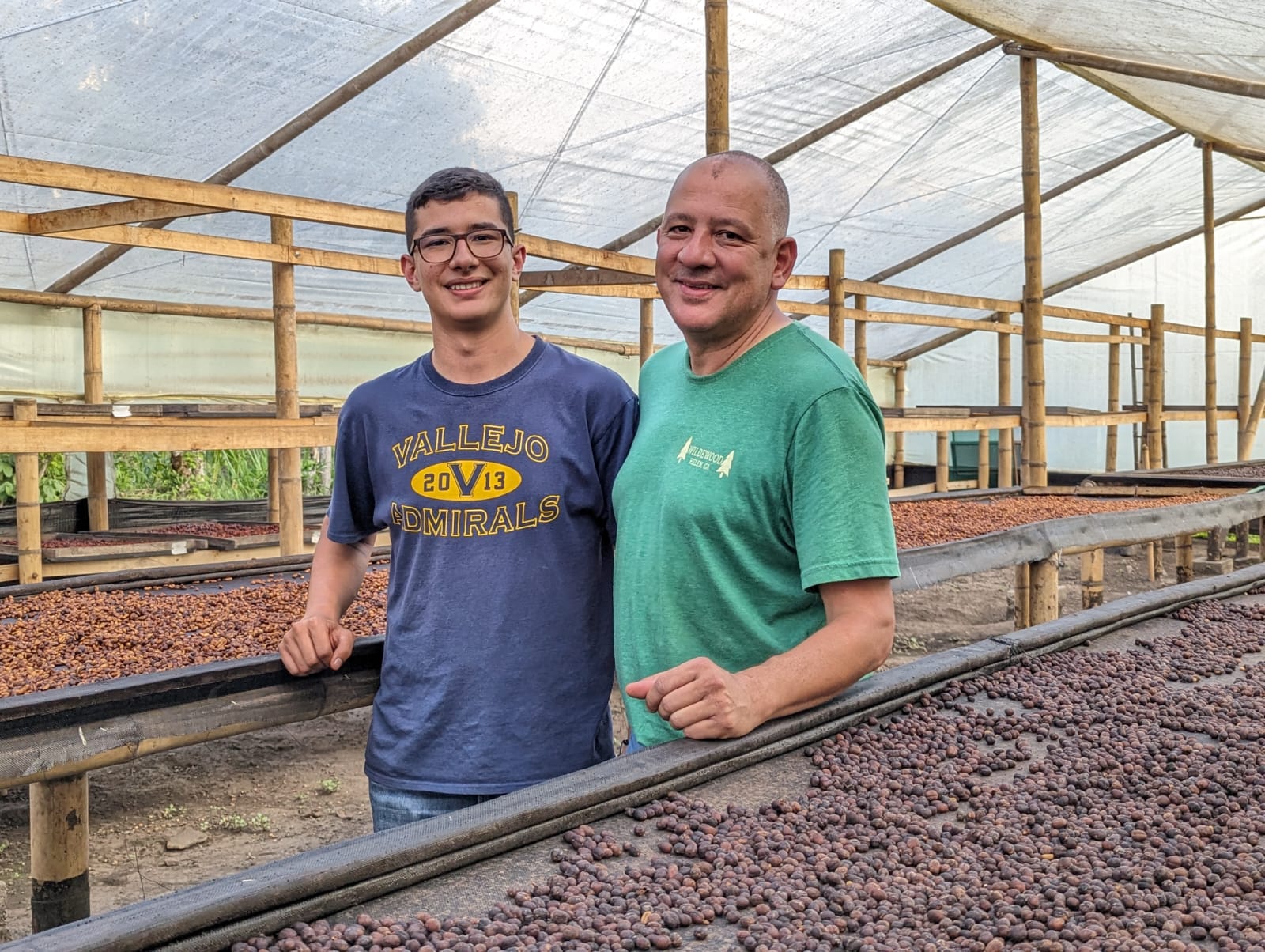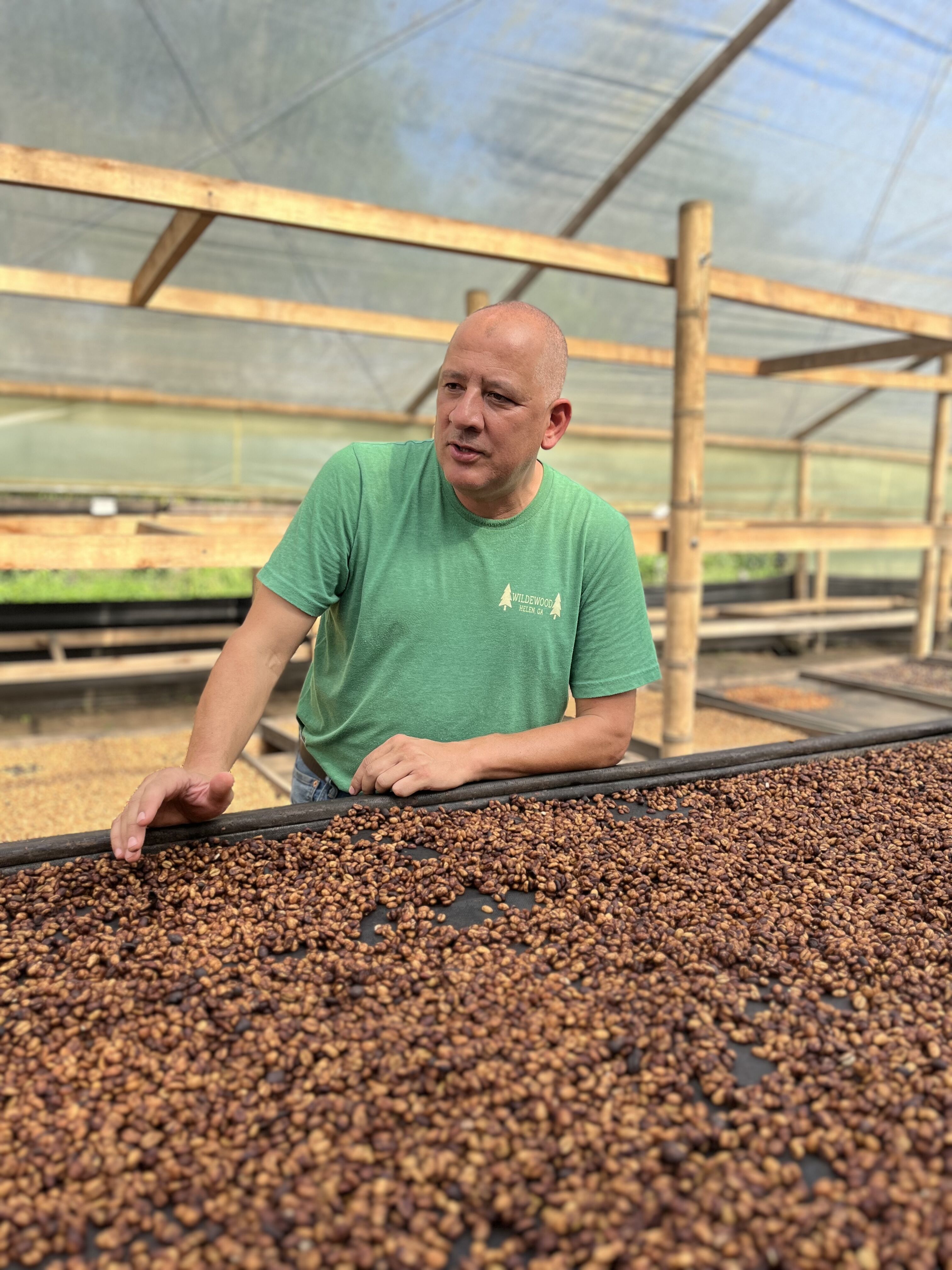Jesus comes from a farming family. His grandfather farmed the fields, and his father mainly grew coffee. It was thanks to this work that his children and grandchildren were able to study different university careers. Jesús is a small/medium producer from Quindío, who mainly grows Caturra, Colombia Variety and Bourbon for the Estate Coffee category, but also produces Micro lots and Nano lots with exotic varieties and differentiated processes. All his production is organic and sustainable.
When you meet Jesus, his slow and thoughtful way of speaking, taking care with every word, demonstrates his wisdom in life and in the field. That integrity is what has forged his purpose on the farm to not only maintain his family's legacy but to improve it through ecological practices out of pure conviction.
In addition, for him the associative cultivation of different fruits such as corn, beans, bananas, cocoa, among others, is fundamental. And as if this were not enough, because of the great biodiversity found in the Buenos Aires farm, he is part of our project "Flowers Corridors" project. There are many floral corridors that combine with the shade trees and other fruits, not only for a better coffee, but also for a better future.




